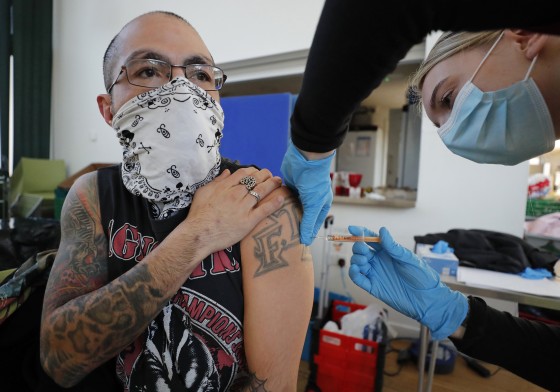LONDON — AstraZeneca and Oxford University's Covid-19 vaccine has similar efficacy against the British coronavirus variant as it does to the previously circulating variants, the university said Friday.
The variant, first identified in Kent, southern England, is more easily transmissible, prompting many countries to restrict travel to Britain. It also led to a spike in infections that forced a new national lockdown in England last month.
Download the NBC News app for full coverage of the coronavirus outbreak
That lockdown came as Britain started rolling out the AstraZeneca vaccine. Over 10 million people have received a first dose of either AstraZeneca or Pfizer's shot.
Britain had said that it believed the vaccines were effective against variants that are circulating in the U.K.
"Data from our trials of the ChAdOx1 vaccine in the United Kingdom indicate that the vaccine not only protects against the original pandemic virus, but also protects against the novel variant, B.1.1.7, which caused the surge in disease from the end of 2020 across the U.K.," said Andrew Pollard, chief investigator on the Oxford vaccine trial.
Sarah Gilbert, co-developer of the vaccine, said that, although the vaccine had efficacy against the U.K. variant, it might need to be adapted for a future variant.
"We are working with AstraZeneca to optimise the pipeline required for a strain change should one become necessary," Gilbert said.
The findings, released in a preprint paper and not peer-reviewed, also detailed recent analysis showing that vaccination with the shot results in a reduction in the duration of shedding and viral load, which may translate into a reduced transmission of the disease, Oxford University said.

